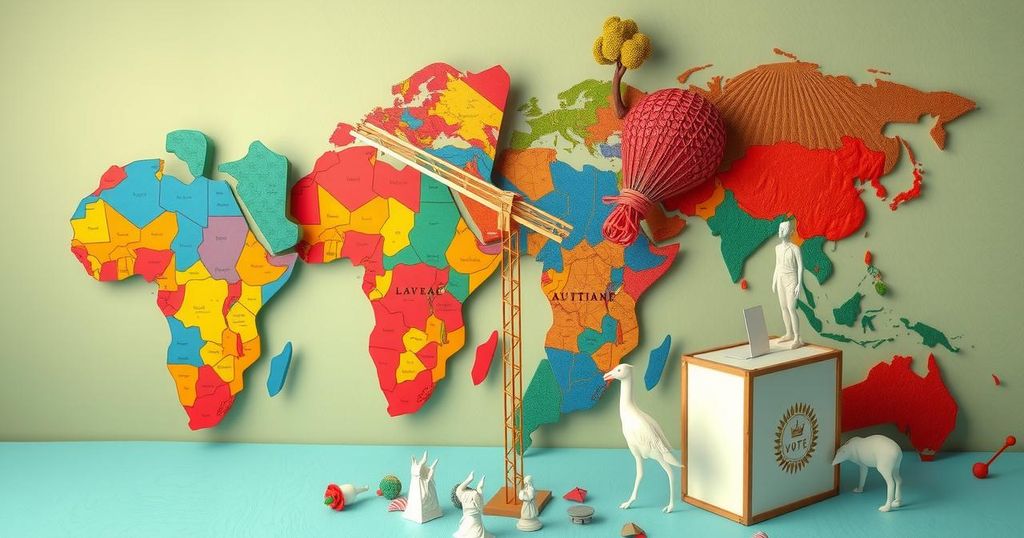In 2025, Africa will hold numerous elections, including nine presidential contests, seven legislative elections, and referendums. Key events include Gabon’s presidential elections on April 12, followed by significant elections in Malawi and Seychelles. Guinea aims to return to constitutional order, while Cameroonian President Biya and Ivorian President Ouattara seek re-election. Togo will hold its first senatorial elections, and Comoros has already commenced its electoral process in early January.
Africa is preparing for a significant election year in 2025, with a total of at least nine presidential elections, seven legislative elections, two senatorial elections, two municipal elections, and two referendums scheduled across various countries. Key elections include Gabon on April 12, following a constitutional referendum, and Burundi, which will conduct legislative elections on June 5.
On September 16, Malawi will hold both presidential and legislative elections, with President Lazarus Chakwera seeking reelection. Seychelles will also conduct elections on September 27, with President Wavel Ramkalawan running for another term. Following a coup, Guinea is planning its transition to constitutional order through a referendum and elections later in 2025.
In October, Cameroonian President Paul Biya, who has held office since 1982, has announced his intention to run for reelection. Ivory Coast will hold its presidential elections around the same time, with incumbent President Alassane Ouattara likely pursuing another term. Tanzania is set for presidential elections as well, with current President Samia Suluhu Hassan expected to seek re-election.
Guinea-Bissau is set to hold simultaneous presidential and legislative elections between October 23 and November 25, while the Central African Republic will conduct its presidential elections in December. Togo will hold its inaugural senatorial elections on February 15, marking a transition towards a parliamentary system.
Lastly, Comoros initiated the election year with its legislative elections on January 12, 2025, and will conduct rerun elections on January 30, followed by additional voting in February. The year ahead promises pivotal developments in the political landscapes of these African nations.
The note outlines an anticipated year of political activity in Africa, with upcoming elections expected to influence the governance and direction of several countries. Various types of elections—presidential, legislative, senatorial, municipal, and referendums—highlight the diverse political landscape across the continent. The landscape is shaped not only by the potential for changes in leadership but also by the effects of previous political unrest and reforms in governance following military coups and transitions to civilian rule.
In summary, 2025 is poised to be a landmark year for African nations, with numerous elections set to unfold that may reshape political dynamics. As countries like Gabon and Malawi prepare for leadership contests, the outcomes of these elections may have lasting implications for governance, stability, and democratic processes across the continent.
Original Source: www.aa.com.tr






